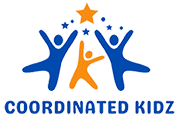Intensive Therapy
Intensive Therapy Programs allow children to achieve a functional goal in a short time frame, whether it be sitting, crawling, bike riding or running!
Intensive Therapy
Intensive Therapy Programs allow children to achieve a functional goal in a short time frame, whether it be sitting, crawling, bike riding or running!
What is Intensive Therapy?
Our Exercise Physiologists provide individually tailored intensive therapy programs for babies and children.
Intensive Therapy Programs allow children to achieve a functional goal in a short time frame, whether it be sitting, crawling, bike riding or running! Intensive exercise physiology blocks are designed to suit your child’s specific needs and participation goal.
The length of sessions, frequency of sessions and total duration of the intensive block will vary depending on these needs and your child’s medical condition and the suitability to intensive therapy. A standard intensive block is 2 or 3 hours per day, 5 days per week for 2-3 consecutive weeks.
Intensives can be modified to suit the child’s needs and can be as little as 1 hour per day, 3 days per week for 2 weeks.
How does intensive therapy assist your child’s centre for movement?
Intensive therapy works around the principles of neuroplasticity to establish new neural connections that allow the child to gradually progress and learn new motor patterns.
Neuroplasticity has a number of key components in order to be successful these include:
- Specificity: we need practice tasks or movement patterns which are related to what we are trying to achieve, and coordinated with the right timing.
- Repetition: Neural changes require lots and lots and lots of practice.
- Difficulty: Practice needs to be at the right level to initiate change. Tasks can be too hard or too easy.
It’s these key reasons that make intensives so beneficial. You can read more about Neuroplasticity on our blog.
Who is a candidate for intensive therapy?
- Children of all ages
- Children with neurological conditions including: cerebral palsy, brain injury, epilepsy, spina bifida
- Children with genetic conditions which affect their movement, Down Syndrome, Prada Willi Syndrome, Rett Syndrome.
- Children with Global Development Delay
- Children who need additional support transitioning into school.
